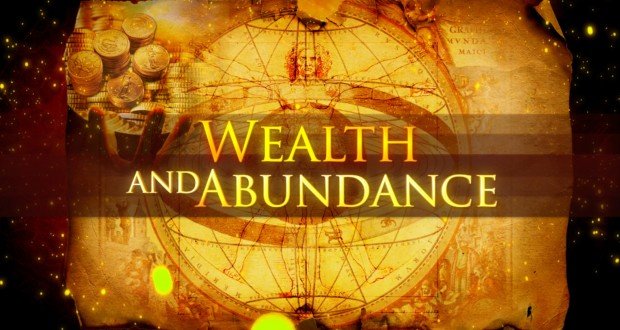The Differences of Rank and the Reason of Human Desires
The Differences of Rank and the Reason of Human Desires

Image Source
It is on the grounds that mankind are arranged to sympathize more totally with our joy than with our sorrow that we parade our riches and hide our poverty. Nothing is so mortifying as exposing our trouble to the public, and to feel that in spite of the fact that our circumstance is there for everybody's viewing pleasure, nobody feels for us a half of what we feel. Surely, this worry for the sentiments of every other person is the fundamental reason why we seek after riches and stay away from poverty.
What is the reason for all the work and clamor of this world? What is the reason for avarice and ambition, of the quest for riches, power, and pre-distinction? Is it to supply the necessities of nature? The wages of the poorest laborer can supply them, his methods manage the cost of food and clothing, and the solace of a house and of a family. If we entirely analyzed his personal spending we would find that he spends a great piece of his pay on comforts that can be viewed as extravagances.
Why are we so worried to abstain from being in his circumstance, and for what reason should the individuals who have experienced childhood in the higher ranks of life see it as more regrettable than death to be lessened to live on an indistinguishable food that he eats, to stay under the same lowly roof, and to be wearing the same humble garments? Do they envision that their stomach is better or their rest sounder in a palace than in a cottage?
The opposite of this has often been called attention to, and it is obvious to the point that everybody would know it regardless of the possibility that nobody had brought it up. What is the wellspring of that imitating that goes through all the diverse ranks of men? What focal points do we anticipate from that great motivation behind human life that we call bettering our condition?
The main points of interest we can plan to get from it are being noticed, attended to, respected with sympathy, approval, and acceptance. The vanity draws us. Vanity is always in view of our thinking, we are the object of attention and approval. The rich man glories in his riches since he feels that they naturally pull in the world's attention to him, and that mankind are arranged to oblige him in all the agreeable emotions that the benefits of his circumstance so promptly rouse in him.

Image Source
At the possibility that his heart appears to swell inside him, and he is fonder of his riches on this account than for all alternate preferences it brings him. The poor man is embarrassed about his poverty. He feels that possibly it places him out of everybody's sight or if people do take any notice of him it's with no kindred feeling for the wretchedness and trouble that he endures. He is mortified on the two accounts.
Being objected to is totally not quite the same as being neglected, however being disregarded is essentially attached to not being endorsed of, the indefinite quality of the ignored poor man likewise close out the sunlight of honor and approval, with the goal that his feeling of not being paid heed to fundamentally damps the most agreeable expectation and frustrates the most fervent want of human nature, to be specific, the want for the approval of one's kindred men.
The poor man goes back and forth unnoticed, and is not any more noticed amidst a group than he is when quiet down in his own particular hut. The modest considerations and sincere work that involve people in his circumstance don't engage the disseminated and the lively. They turn away their eyes from him, or if his trouble is extreme to the point that they need to take a gander at him, it's just to avoid themselves as much as possible from such a disagreeable object.
The individuals who are blessed and pleased are stunned that human wretchedness should set out to introduce itself before them, having the rudeness to irritate the quietness of their happiness with the nefarious view of its hopelessness. The man of rank and refinement, then again, is seen by all the world. Everybody is anxious to take a gander at him, and to have, if just through sympathy, the joy and jubilee that his conditions naturally move in him.
The public think about what he does about his each word, each motion. In a substantial get together he is the individual everybody takes a gander at, sitting tight for him to begin and direct their passions, and if his conduct isn't through and through ludicrous, each moment gives him a chance to interest mankind, and to make himself an object of the perception and individual feeling of everybody around him.
Image Source
This attention forces limitations on him but then it makes greatness an object of envy, and everybody feels that it compensates for all the drudge and tension associated with the quest for it, and all the recreation, ease, and joyful security that are lost always by the procurement of greatness.
When we consider the state of the great in the deceptive colors in which the creative energy is able to paint it, it is by all accounts nearly the conceptual thought of a perfect and happy state. It is precisely the state that we in our fantasies had outlined out to ourselves as a definitive object of all our desires. That gives us an extraordinary sympathy with the fulfillment of the individuals who are in that state.
We support all their slants, and bolster all their desires. What a pity it would be if anything somehow happened to ruin and degenerate such an agreeable circumstance. We could even wish them to be immortal, and it appears to be difficult to us that death ought to finally put a conclusion to such perfect enjoyment. Great King, live always, is the Asian compliment that we would promptly offer them if experience didn't show us its ridiculousness.
Each catastrophe that befalls them, each damage that is done to them, excites in the breast of the spectator ten times more compassion and resentment than he would have felt if similar things had happened to other men. The main legitimate subjects for catastrophe are the hardships of kings. In this regard they look like the hardships of lovers.
Those two circumstances are the ones that mostly interest us in the theater, on the grounds that regardless of everything that reason and experience can instruct us actually, the preferences of the creative ability connect to these two states a happiness better than some other. To aggravate or to put a conclusion to such perfect enjoyment is by all accounts the most terrible of all wounds.

Image Source
All the blameless blood that was shed in the civil wars incited less outrage than the death of Charles I. An outsider to human nature who saw men's aloofness to the wretchedness of their inferiors and the lament and resentment they feel for the setbacks of those above them may well imagine that pain must be all the more anguishing, and the writhings of death more horrible, for persons of higher rank than for those lower down in the scale.
Mankind's demeanor to oblige all the passions of the rich and the powerful is the reason for the ordering of society into various ranks. Our stooping reverence to our bosses originates from our adoration for the upsides of their circumstance more often than it originates from any person's expecting advantage from their cooperative attitude. Their advantages can extend to just a couple, however their fortunes involve worry to nearly everybody.
We're anxious to help them to finish a system of happiness that comes so close to perfection, and we need to serve them for their own particular purpose, with no reward however the honor of obliging them. Nor is our regard to the desires of people of high rank basically in light of a worry for the value of such accommodation, a worry for the social order that is best upheld by it.
Notwithstanding when the order of society appears to require that we ought to contradict the high-ranking people, we can scarcely force ourselves to do it. Consider the tenet that kings are the hirelings of the people, who are to be complied, opposed, dismissed, or rebuffed as the public accommodation may require, regardless of the possibility that no other malice were to take after from it, as the severest of all embarrassments.
To regard them in any capacity as men, to reason and contend with them on ordinary events, requires a quality of character that couple of men have. The most grounded intentions are not really enough to exceed this normal demeanor to regard them.

Image Source

References:
https://en.wikipedia.org/wiki/Human_nature
https://en.wikipedia.org/wiki/Desire
https://www.speakingtree.in/blog/the-difference-between-ambition-and-desire
http://www.patheos.com/blogs/christiancrier/2015/08/21/what-is-the-difference-between-wealth-and-riches-in-the-bible
a very interesting post success @juvyjabian
help Upvote @bustamam
Very deep knowldege and research. I'm applying for discipleship master XD
You need to be an intern first :)
Congratulations! This post has been upvoted from the communal account, @minnowsupport, by juvyjabian from the Minnow Support Project. It's a witness project run by aggroed, ausbitbank, teamsteem, theprophet0, someguy123, neoxian, followbtcnews/crimsonclad, and netuoso. The goal is to help Steemit grow by supporting Minnows and creating a social network. Please find us in the Peace, Abundance, and Liberty Network (PALnet) Discord Channel. It's a completely public and open space to all members of the Steemit community who voluntarily choose to be there.
Everyone is equal but some people made this line as i am greater than all. Selfishness is increasing and brotherhood is decreasing from this world, thats why both poor and richer ratio increasing.
Heart breaking but great post.
Hearbreaking indeed but is a reality. Lots of people prefer to choose riches and be famous.
True.